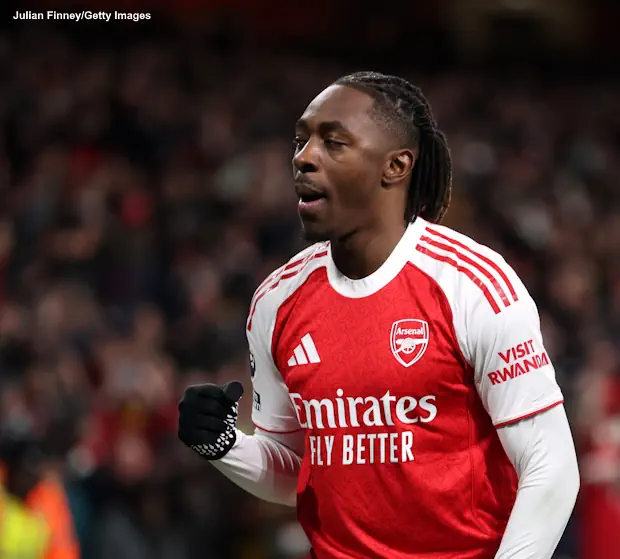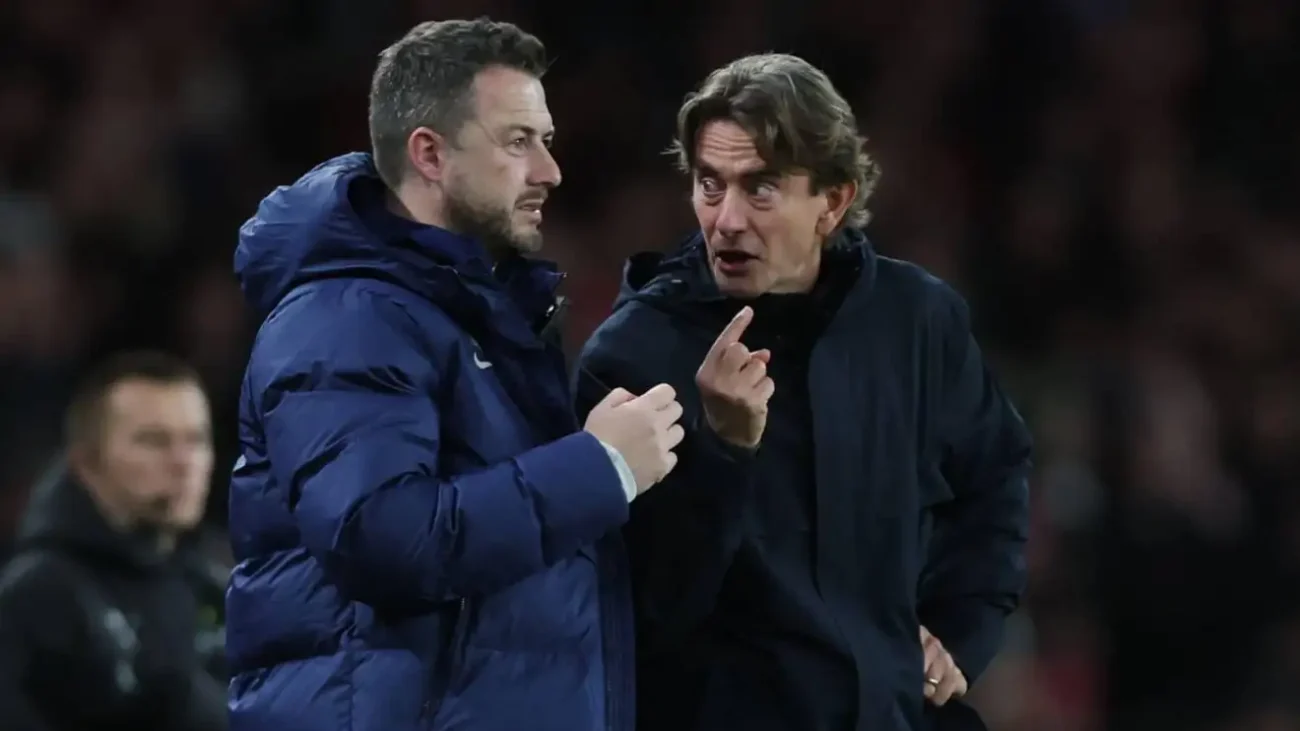Thomas Frank finds himself walking a dangerous line at Tottenham, and the pressure is rising quickly. The mood among supporters has shifted from cautious patience to genuine concern, and many fear the club is regressing instead of moving forward.
What should have been a competitive North London derby instead turned into a one-sided contest, with Arsenal cruising to a 4-1 win that exposed every weakness Spurs currently carry.
The defeat was not only damaging but also deeply embarrassing, and it has forced questions about Frank’s leadership, his tactical approach and whether he truly understands the expectations that come with managing a Champions League-level club.
Tottenham travelled to the Emirates with the best away record in the league, and yet they looked like a mid-table side unsure of who they are or how to approach the moment.
Arsenal, on the other hand, are moving like a team convinced they will win the title for the first time in over two decades. The gap between the sides was unmistakable.
Frank’s team looked hesitant, reactive and far too comfortable sitting deep, a choice that made little sense for a club that has spent years trying to shake off its reputation of shrinking in big moments.

His decision to switch to a back three was clearly made out of fear of Arsenal’s set-piece threat rather than confidence in his squad. Even with Gabriel unavailable, the plan backfired. Tottenham looked disjointed throughout the first half, a team playing a system they were not prepared for.
After going into the break two goals down, Frank abandoned the shape entirely, but by then the damage was irreversible. The lack of preparation showed, and the timing of the international break certainly didn’t help, yet these are problems elite-level managers must be able to solve.
Many Spurs fans accepted that Postecoglou’s tenure had run its course despite the Europa League triumph, but the shift from a bold, high-risk identity to the more cautious style under Frank has been jarring.
The dramatic contrast between “Ange-ball” and the hesitant, passive football now on display is hard to ignore. Yes, Tottenham have enjoyed some strong results, mainly away from home, but when things go wrong, the collapse is severe.
Against Arsenal, Spurs looked nothing like a top-six team. They looked fragile, uncertain and unwilling to step forward. It was the performance of a club drifting toward the wrong end of the table.
The frustration was amplified by the predictability of Eberechi Eze’s goals. Every Tottenham fan seemed to expect him to score after the dramatic summer saga in which he agreed to join Spurs before reversing course and choosing Arsenal once Kai Havertz was injured.
His hat-trick served as a painful reminder of what Tottenham failed to secure and what Arsenal gained. Spurs had a chance to close that deal early, and if they had triggered his release clause sooner, the entire story might have played out differently. Instead, Eze is now pushing Arsenal forward while Tottenham watch from a distance.
After the match, Frank tried to soften the blow with an apology to the fans. He insisted the game plan was never meant to be so passive, but his explanations offered little comfort. Supporters have heard similar lines before, especially after the lacklustre home defeat to Chelsea earlier this season.
The recurring theme of being second best, lacking ambition and starting matches on the back foot has become too familiar. These issues don’t come from bad luck they come from leadership.
Frank told Sky Sports the performance was “extremely painful” and reiterated that the intention was always to be aggressive, but Spurs never got close. They lost duels all over the pitch, they couldn’t progress the ball and they struggled to escape pressure.
He admitted his tactical setup didn’t work, but also emphasised that no formation would have saved them because they lacked intensity and desire in key moments. Tottenham looked tentative, uncoordinated and unwilling to match Arsenal physically.
He also acknowledged the ongoing creative issues that have haunted Tottenham all season. Spurs failed to create chances against Chelsea, and they failed again at the Emirates. Four months into his tenure, Frank is still trying to establish a clear identity, but the gap between Tottenham and Arsenal looks wider than ever.
He asked for patience, reminding supporters of where the club finished last season, but patience only lasts so long when results turn humiliating.
And now, with Paris Saint-Germain looming in the Champions League, the situation is not about to get easier.
Off the pitch, the club is exploring signings, fighting rivals for transfer targets and navigating complicated negotiations, yet none of that will matter if Frank cannot restore belief on the pitch.
Tottenham cannot afford repeated collapses, and Frank cannot afford many more nights like the derby. He must show that he understands the scale of the job, the expectations attached to this club and the urgency required to stop the slide before the fans lose faith entirely.
